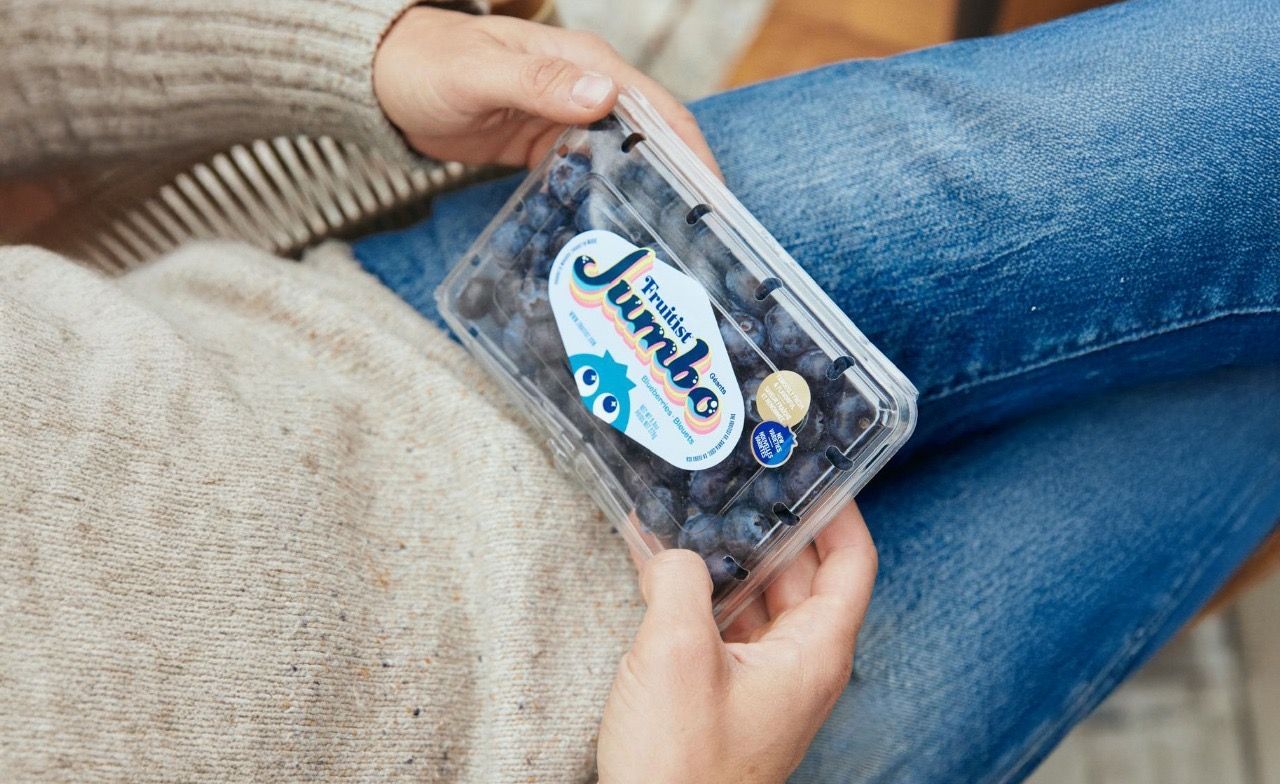Superfruit specialist Agrovision has rebranded as Fruitist to align with its consumer brand of the same name, and says sales of its signature jumbo blueberries grew three-fold over the past 12 months, helping it achieve sales of $400 million.
Los Angeles-based Fruitist, which acquired Chilean cherry specialist ZurGroup late last year, supplies berries under the Fruitist brand to leading US retailers including Costco, Walmart and Whole Foods. It also markets blueberries to consumers under the Big Skye brand in China.
“Fruitist has become one of the fastest-growing names in the global fresh fruit market,” said the vertically integrated company, which was founded in 2012 with an initial focus on blueberries from Peru. “The brand is outpacing even the premium berry category, which has seen a 22% compound annual growth rate between 2019 and 2024.”
The firm has since expanded its growing areas to Mexico, Egypt, Chile, India, Morocco, the USA and China, and supplies retailers in 28 countries.
While Fruitist blueberries are its top seller, Fruitist has also expanded into blackberries, raspberries, and cherries, and is developing new snackable formats.
Asked to comment on the impact of tariffs, a spokesperson told AgFunderNews: “Tariffs have minimal impact on our business. Our global footprint is highly diversified, allowing us to shift supply as needed. We operate in a premium category and have a loyal customer base that’s more value-focused than price-sensitive. Our imports complement the US market by maintaining availability and quality year-round, which ultimately benefits both consumers and domestic growers.”
Tech-enabled approach
In recent years, Fruitist has invested heavily in new genetics, artificial intelligence, and other technologies, recently hiring a CTO and striking a partnership with Seattle-based RipeLocker to deploy patented low-atmosphere vacuum chambers to extend the life of berries across its supply chain.
“We love this technology,” Magami told AgFunderNews in a recent interview. “This is a great example of a proven technology where we’ve shown we can double the shelf life of a raspberry.”
AI is also “a big area for us,” he said. “We’re working on what we think will be a first in the industry in terms of optimized prediction of the harvest.”
As for genetics, he said, “The industry went too far away from flavor and towards production and yield for a long time, whereas we’ve been leaning in on flavor. But the second most important thing to us is climate resiliency.”





